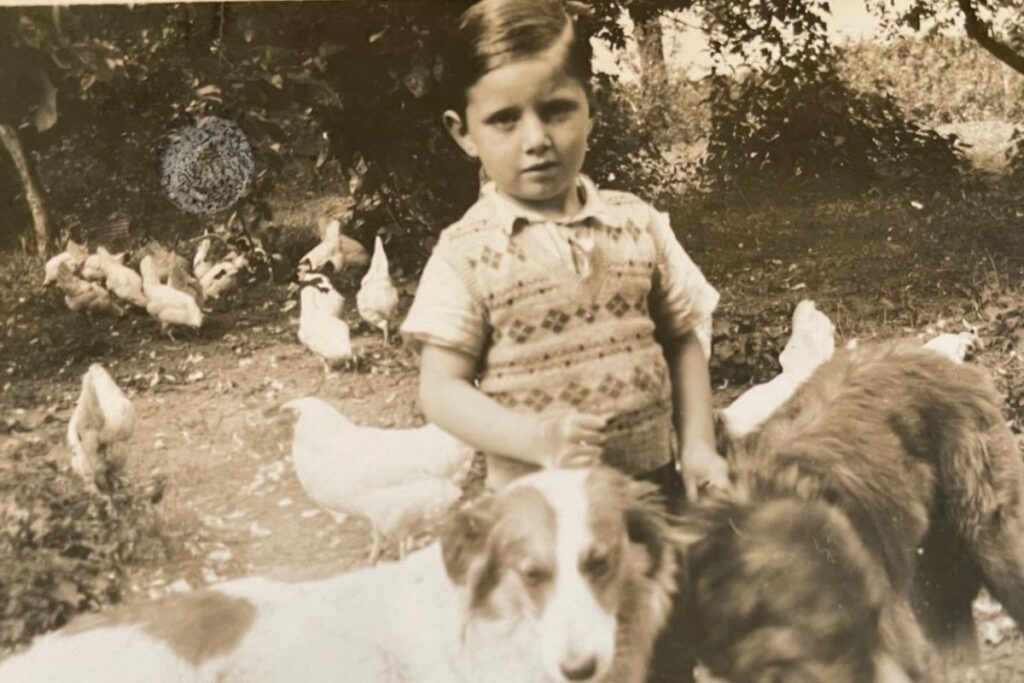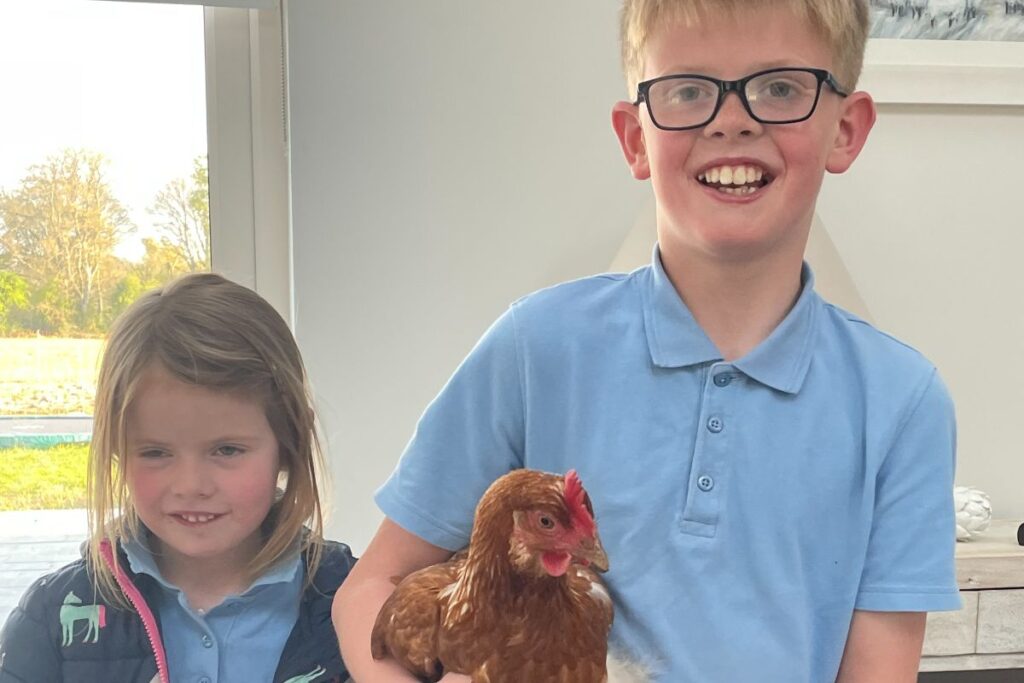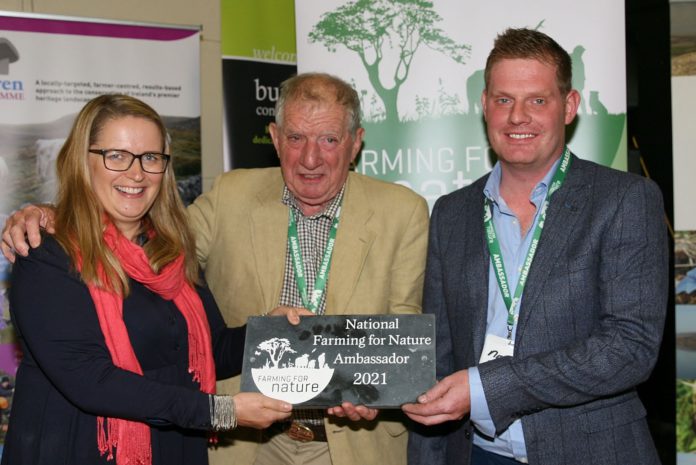That’s Farming editor, Catherina Cunnane, in conversation with Norman Dunne (35) of Dunne’s Farm Pastured Eggs, Owenstown, Maynooth, Co. Kildare, in this week’s Farmer Focus segment.
The fourth-generation farmer, who runs a 400-ac enterprise with his family, discusses a long-standing mixed farming tradition, farming with nature in mind, pasture range eggs and the nutritional benefits for consumers.
“My grandfather was a mixed farmer, and his main enterprise was dairy in Maynooth. I think it was the Second World War when farmers were made to grow compulsory cereal crops for food.
My father, Michael, got to like growing crops, and our farming enterprise took a tillage-orientated direction from this point on.
My great grandmother sold eggs, along with chicks and hens, from the 1920s to the 40s and 50s all over Ireland.
They were put on buses in the square in Maynooth and sometimes had to change buses to reach their end destination. We still have her order book of where they went.
So, we have always kept hens for our own use and have always valued the quality of the eggs we produce.

The quality was measured by our two children when they would not eat scrambled eggs in France last year because “the eggs were not nice, and the colour was wrong (pale)” compared to the bright yellow and flavoursome eggs they were used to at home.
It was Farming for Nature that opened our eyes to pasture range eggs. We are ambassadors for Farming for Nature, and I have met many different farmers and different enterprises.
It was while taking part last year that we saw farmers selling their own produce directly to the public. That was where the idea came from originally.

Egg selling
As explained, we have always had hens, but our egg selling, a business, which we run alongside our arable and hay enterprises across 400-acres, began in April 2022.
My parents, Michael and Geraldine, my wife, Laura, and our two children, Michael, and Lily, are involved in the running of the farm.
We produce in the region of 200 eggs per day and grow a range of crops, both winter and spring, with as close to permanent ground cover as possible. Furthermore, we grow cover crops between cereal and pulse crops, all while trying not to disturb the ground.
Our overall aim is to produce a premium fresh, nutrient-dense product direct to our customers whilst farming regeneratively/biologically.

We follow the three principles of conservation agriculture as best as possible.
- Minimum soil disturbance(no-till);
- Permanent soil cover (mulches, cover crops and crop residues);
- As diverse rotation as possible.
The roots of the cover crops keep the soil covered over winter, creating habitats and food for all sorts of soil fauna and birds.
They also mop up any loose nutrients and bind soil particles, so everything is kept in the field. The leaves act as solar panels pump liquid carbon down into the soil feeding microbiology in exchange for valuable, locked up nutrients.

Pasture egg farming
Pasture range hens are more than just free-range. Moreover, Pasture range hens have access to green, fresh pasture at all times.
Furthermore, we supplement our hens with a diet of our home-grown barley/peas, oats/peas, some beans, and wheat. All are sprouted, which means that they get maximum nutrition.
Sprouting the grains means the seed naturally releases all its nutrients for the plant to grow; all these nutrients are then freely available to the hens. This is true for any animal or human.
Our pigs receive the same diet, meaning they never receive any soya or genetically modified grains. Everything is grown within two miles of the hens.
We run a mobile coop that we built ourselves. It is automated to open at 5.30 am and close at 10.30 pm. We do not use artificial light. It has a mesh floor that allows the droppings onto the ground to fertilise the soil.
We move the coop around weekly to fresh pasture or cover crops and use mobile poultry fencing.
We move their access areas every week, which means that when a hen is fed on a diet which is closer to its natural omnivorous state. Therefore, the nutrition of the egg improves significantly.

Benefits
Eggs from hens raised on pasture can contain:
- 1⁄3 less cholesterol;
- 1⁄4 less saturated fat;
- 2⁄3 more vitamin A;
- 2 times more omega-3 fatty acids;
- 3 times more vitamin E;
- 7 times more beta carotene;
- 4-6 times more vitamin D.
This is because they consume a more natural diet, including seeds, worms, insects and green plants, plus a lot of sunshine.
Pasture range egg’s colour, flavour and texture are made distinctive by high amounts of Vitamin A, D, E, K2, B-12, folate, riboflavin, zinc, calcium, beta carotene, choline, and tons of omega 3 fatty acids, including DHA, EPA, ALA, and AA. A pasture-raised egg is a true superfood.
Second, only to the lactalbumin protein in human mother’s milk, eggs have the highest quality protein of any food.

Honesty box and demand
We operate an honesty box at the entrance to our farm, Eircode: W23V0H9). Demand has steadily been growing for our eggs.
We can see plenty of repeat customers coming back and have received a lot of very positive feedback from everyone.
We hope to gradually make a move to sell pasture range chicken/turkeys and possibly pastured pork/ham.
Overall, we would like to see the farm with much better soil health. It is improving year on year. But in five years, I hope to be a long way down our path of regenerative farming.
So far, we have taken a shot into the dark doing something different. This would not be possible without the help and support of Base Ireland, The Danú Farming group and Farming for Nature.”

To share your story, email – [email protected]





